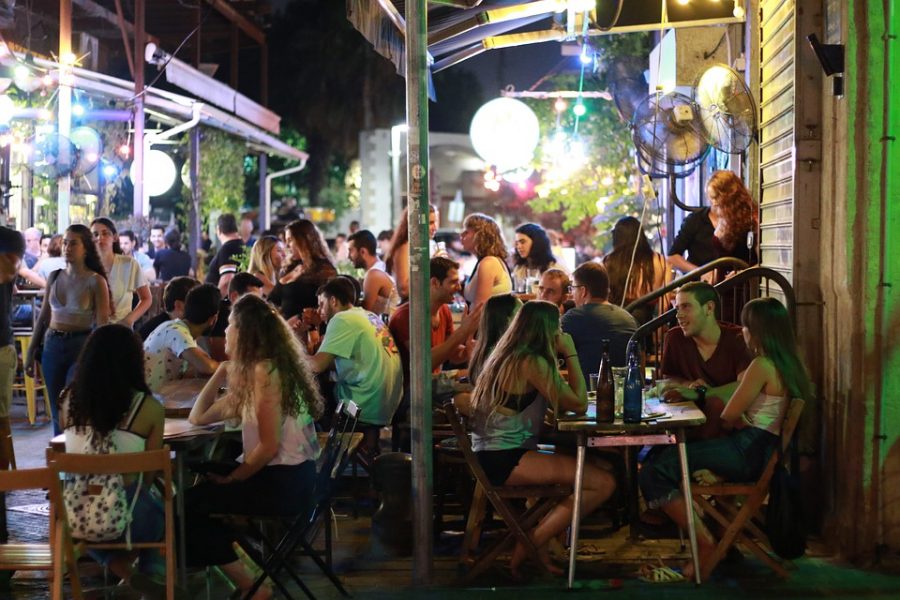Moran: Young Adults vs. COVID-19
April 3, 2020
Unfortunately, the rapid spread of COVID-19 has not been enough for some young people to take the pleas to stay home very seriously. Airplane services and other traveling hospitalities have become cheaper than usual, and many young people with the travel bug have continued with their travel arrangements. Along with this, many young people have ignored warnings from public health experts and continued to attend social gatherings. Hopefully, some of this behavior has changed by now due to stricter gathering requirements, but many young adults have still found ways to remain in physical contact.
I have been devastated by the state of the country and the world. Like many college students, I was not worried about COVID-19 when I first heard about it — I kept hearing that my chance of survival would be relatively high. What I failed to realize is the risk I would pose to others if I become ill. Too many young adults focus only on themselves and do not think about the fatal consequences others may face. Flouting the CDC’s guidelines is selfish. We might believe we are invincible, but we are not. We need to alter this mindset now or we will be living in isolation much longer than we originally expected.
Some young adults in the United States have been careless about the possible effects of COVID-19. Miami spring breakers were some of the most headstrong violators. Practicing social distancing was the furthest thing from their minds, and many of them now regret it. A woman in Pennsylvania committed a prank in extremely poor taste — she went around a local grocery market and coughed on about $35,000 worth of goods. A TikTok influencer reportedly tested positive for COVID-19 shortly after following a trend to lick a toilet seat.
Young adults are not only putting themselves in danger but also the people around them. In Florida, there are almost 7,000 confirmed cases. Nationally, about one-fifth of the Americans currently infected with COVID-19 are young adults. In places like Philadelphia, for example, young adults are testing positive at higher rates than other demographics. Although many young people have recovered and many will recover, that is not always the case.
Older people and people with underlying medical conditions are at the highest risk, but there have still been tragic cases of people who are not considered high risk. Recently, a 26-year-old with no prior medical conditions from New York was hospitalized after intense shortness of breath. A New York physician said he has treated far too many young adults — more young adults than any other age group. When the virus first emerged, he was scared for his grandmother and other elderly people, but now he has started to fear for himself after treating so many people around his age. Young adults have died from COVID-19 as well. What some thought of as a mild illness with a semi-quick recovery can be an intense illness with serious effects.
Despite the high recovery rate, I have trouble understanding why some people are not taking the death rate seriously enough. Even if people are willing to take their chance with the virus, they should care about the others being affected. For example, people in the medical field have been working intense hours and risking their own lives to fight COVID-19. Grocery store workers are put at risk by continuing to work. Some people may also have underlying conditions that they do not know about. If they can, people should remain distanced from others and work from home. This helps reduce the spread of the virus and allows those who cannot work from home to still receive their paycheck.
Right now is an intense time for us all. Schools have been shut down, graduations postponed, and traveling is difficult. But we are all in this together. It is important to understand that just because the recovery rate is high, recovery is not the case for everyone. Think about others during this time and practice good self-care — hopefully, we will get through this soon.
Editor’s note: Signs and symptoms of COVID-19 include fever, dry cough, tiredness and shortness of breath. These symptoms are believed to occur between two and 14 days after a person is exposed to the disease. If you have these symptoms and have recently come into contact with a person who is known to have COVID-19, or if you have recently traveled to an area with community spread of the disease, you should call your doctor. Areas with community spread of COVID-19 are believed to include China, South Korea, Italy, Iran and Seattle. If you do not have a doctor who you visit regularly, please call the Utah Coronavirus Information Line at 1-800-456-7707 or the University of Utah Health hotline at 801-587-0712. Do not go to a healthcare facility without first making arrangements to do so.







